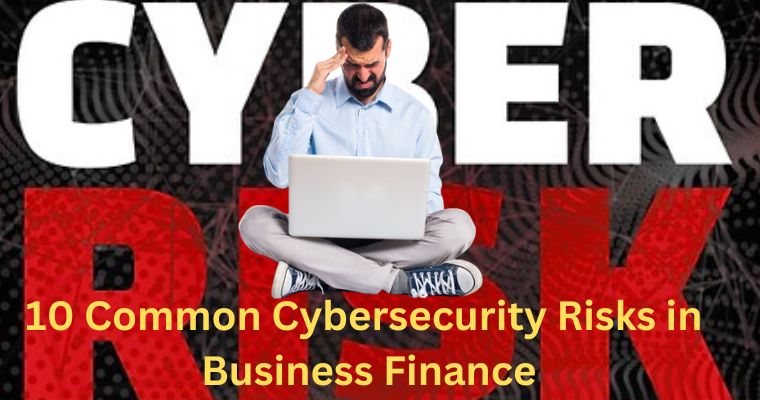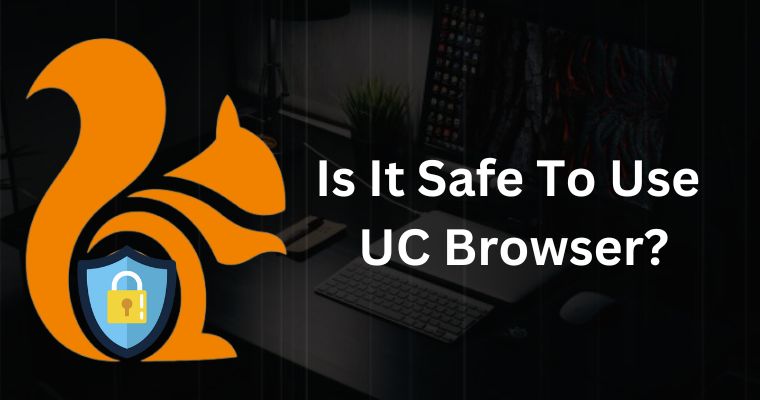Navigating the world of business financing is like walking a tightrope. It requires you to stay vigilant and knowledgeable, or you could easily lose your footing and fall.
One of the most important pieces of data security when it comes to business finance is understanding the common cybersecurity risks that are out there.
With increased reliance on technology, there is a greater chance of cyberattacks and other security issues. That means you must comprehend typical cybersecurity threats that might happen at any time.
You should also know how to reduce their impact if you want to secure your company’s funds from malicious activity effectively.
Table of Contents
Ten Most Common Cybersecurity Risks in Business Finance.
Outdated Software and Operating Systems
Attackers tend to find outdated software and operating systems to be simple targets since they frequently have vulnerabilities that can be used against them.
That’s why businesses should ensure that all systems and devices linked to their networks are updated regularly with the latest software and security standards.
Since we’re talking about finance, companies must invest in a reputable spending management solution like those offered by Advance. Doing so ensures that all financial transactions are efficiently tracked, monitored and managed.
Spotting any suspicious activity and taking the necessary steps to prevent a potential breach will be easier.
Phishing and Spoofing
Phishing is when criminals use emails or other communication channels to trick victims into revealing private information or allowing them access to their systems.
Meanwhile, spoofing is the act of an attacker imitating another person to gain access to or steal data from a system. These two ways can be used to access corporate accounts and steal sensitive information.
To protect against phishing and spoofing, you should have a thorough security strategy that is continually evaluated.
This includes teaching employees about cybersecurity and how to detect and mitigate possible threats. You should also ensure your company’s PCs’ firewalls, antivirus software, and other security measures are current.
Malware Attacks
Attackers can employ malware to enter a company’s networks and systems since it is malicious software. Malware assaults are frequently challenging to identify since attackers typically use legitimate-looking emails or other techniques to obtain access.
As part of your business’s defense against malware attacks, you should ensure that all machines run the most recent versions of antivirus software and conduct routine system scans.
Unsecured Data Storage
Due to the frequent storage of sensitive data on networks, businesses are vulnerable to cyberattacks. Attackers can easily access sensitive information or financial accounts if data storage is not secure.
To protect your business from this attack, you should ensure that all systems and networks are properly secured using the most recent encryption and authentication methods.
In case of a security compromise, businesses should also ensure that all data is routinely backed up.
Inadequate Access Controls
Access controls are among the most significant aspects of a business’s cybersecurity strategy. If access to networks and systems is not managed correctly, attackers may quickly enter the system or gain access to sensitive data.
To ensure that your company’s access control measures are effective, you should have a strict authentication process in place and use multi-factor authentication wherever possible. Additionally, make sure all login credentials are changed regularly.
Password Mismanagement
Adopting solid and difficult-to-guess passwords and password-protecting all user accounts is essential. Companies should also ensure that these passwords are updated frequently and stored safely.
Businesses should use a password manager to store and manage passwords to protect themselves from password misuse. Users can construct complicated passwords and safely store them in one place using software apps called password managers.
Poor Network Security
Network security is crucial because attackers might utilize any vulnerability to access the networks and systems of your business. Confidential data may be in danger due to inadequate network security, which might result in data theft or manipulation.
Make sure all devices are running the most recent antivirus software and updates. Make sure that the firewall is routinely updated and correctly set. Update all operating systems as well, and ensure all user accounts have strong passwords.
Insufficient Employee Training
When it comes to cybersecurity, employees are often the weakest link. Businesses must provide thorough security training to staff members on identifying threats and responding to protect against employee errors and malicious attacks.
The necessity of protecting passwords, making use of reliable authentication methods, and double-checking emails and URLs before clicking on them must also be understood by employees.
Businesses that engage in staff training can dramatically reduce the danger of cyberattacks.
Lack of Disaster Recovery Plans
No company is immune to the threat of cyber-attacks, and businesses must have a disaster recovery plan in place if an attack is successful. A solid disaster recovery plan should contain procedures for backing up all data and restoring systems in case of a security compromise.
Along with this, it’s crucial to guarantee that staff members are aware of their roles in the recovery process and that all systems are routinely checked to guarantee their security. Businesses can mitigate the harm caused by a cyber-attack with the correct disaster recovery plan.
Data Breaches
Even while data breaches are hard to anticipate, they may be reduced with the correct security precautions. Businesses can take precautions to safeguard themselves, such as ensuring data is secured and keeping track of user behavior on their systems.
Regularly reviewing all authentication procedures and access controls is also crucial.
If businesses monitor their networks for unusual behavior and have a reaction strategy in place, they can spot data breaches early. To protect themselves from a breach’s expenses, businesses should consider getting cyber liability insurance.
Final Thoughts
Owning a business comes with numerous responsibilities, and cybersecurity should be at the top of the list. With the right approach to security, companies can rest easy knowing their data is shielded from cyber criminals and other malicious individuals.
Keep these tips in mind and ensure your business has taken all necessary steps for full protection against cyber threats. Don’t forget to educate your employees and review their cybersecurity knowledge regularly.
A well-informed staff is a company’s best defense against cyber-attacks. Neglecting cybersecurity can have serious consequences, so take it seriously and prioritize it in your work culture.





